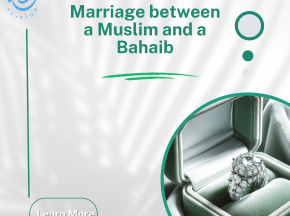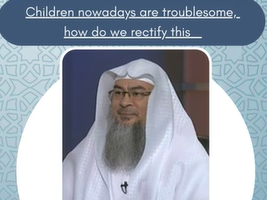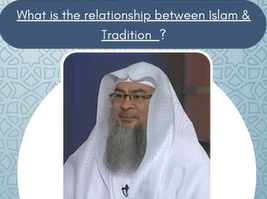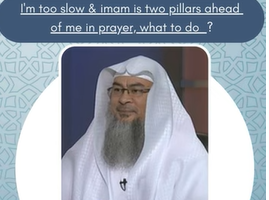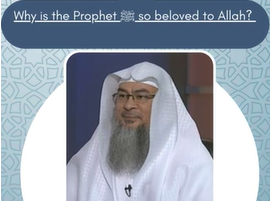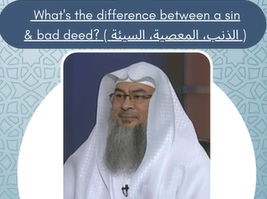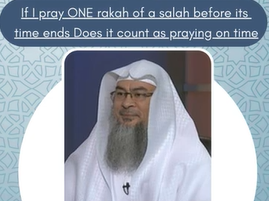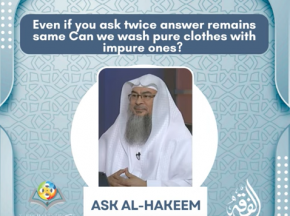content of level
Marriage between a Muslim and a Bahaib
Muslims are unanimous that a Muslim woman may not marry a non-Muslim. It is also universally agreed that Bahais are unbelievers. As such, they may not marry Muslim women. Many scholars and authorities have outlined their ruling on this question.
Children nowadays are troublesome, how do we rectify this
Children nowadays are troublesome, how do we rectify this
Can I pay bribe to get into an Islamic school
Can I pay bribe to get into an Islamic school
What is the relationship between Islam & Tradition
What is the relationship between Islam & Tradition
I'm too slow & imam is two pillars ahead of me in prayer, what to do
I'm too slow & imam is two pillars ahead of me in prayer, what to do
Telling seller the item is low value while telling buyer its high value to make profit permissible
Telling seller the item is low value while telling buyer its high value to make profit permissible
How to pray if working hours are fixed Am I sinful if I take time out to pray
How to pray if working hours are fixed Am I sinful if I take time out to pray
If I make mistake in sunnah or mandatory act in prayer, must I repeat prayer
If I make mistake in sunnah or mandatory act in prayer, must I repeat prayer
Recommendations for Tadabbur of the Quran
Recommendations for Tadabbur of the Quran #assim assim al hakeem
Can a woman communicate with non mahram men for business purposes
Can a woman communicate with non mahram men for business purposes_ #assim assim al hakeem
Why is the Prophet ﷺ so beloved to Allah?
Why is the Prophet ﷺ so beloved to Allah?
Can a woman travel without mahram to a city that is 40 - 50 minutes away?
Can a woman travel without mahram to a city that is 40 - 50 minutes away?
What's the difference between a sin & bad deed? ( الذنب، المعصية، السيئة )
What's the difference between a sin & bad deed? ( الذنب، المعصية، السيئة )
Why did Allah create the disbelievers if they are going to Hell anyway?
Why did Allah create the disbelievers if they are going to Hell anyway?
Does praying 2 rakahs when leaving & returning home protect us from evil?
Does praying 2 rakahs when leaving & returning home protect us from evil?
AI helps me complete my coding program that is in my thoughts, is it apostasy
AI helps me complete my coding program that is in my thoughts, is it apostasy
If I pray ONE rakah of a salah before its time ends Does it count as praying on time
If I pray ONE rakah of a salah before its time ends Does it count as praying on time
Were we given a choice to come to this world?
Were we given a choice to come to this world?
Even if you ask twice answer remains same Can we wash pure clothes with impure ones
Even if you ask twice answer remains same Can we wash pure clothes with impure ones
Can a woman pray in large pants?
Can a woman pray in large pants? - #assim assim al hakeem

